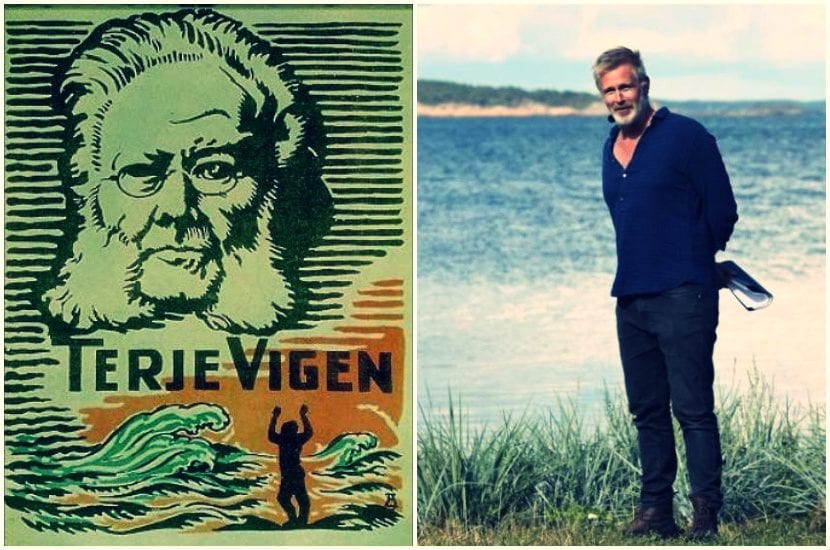
Photo: Del Grimstad Adressetidende. Norwegian actor and director Trond Espen Seim last August 4 after reciting Terje Vigen at the Ibsen-Hamsun days held in Grimstad.
And considered almost like Don Quixote in the Nordic country from which Henrik Ibsen is without a doubt its greatest playwright and one of the most universal Norwegian authors. Last August the Ibsen and Hamsun days took place, where, as usual, the Terje Vigen, narrative poem, unknown to the most ordinary reader, who tells one of those epic stories whose protagonist becomes national myth. So I bring him a little closer to the crowd and walk around Ibsen.
Henrik Ibsen
Born in Skien In 1828, Ibsen, a Norwegian playwright and poet, is one of the most influential authors on the modern scene. His Doll's House, with its protagonist Nora, is one of the best known of all time and most current these days for its feminist allegation. Other well-known works are Brand, Peer Gynt o Hedda Gabler.
Main exponent of modern realistic drama, his works were considered scandalous in the society of victorian values prevailing, as he openly questioned them. Nor have they lost their validity over time and they continue to be performed regularly. Without going any further the National Theater Oslo celebrates the next Ibsen festival from 8 to 19 of this month.
Terje Vigen
Ibsen's facet and poetic work are practically unknown around these parts, but they are very popular in the Nordic countries. From Terje Vigen in particular, but also of his other poems, they are said to have become a kind of compilation that children study as the Quijote.
Terje Vigen is an epic poem by 52 stanzas that Ibsen published in 1882. It tells the dramatic story of a man, a brave and fearless sailor that, in the napoleonic wars, during the English blockade of Norway in 1809, and with his family on the brink of death out of hunger, he rowed from Mandal to Denmark to bring barley.
This poem has been made since film adaptations a musical.
The film
With the title referring to the first two lines from the poem "Once upon a time there was an old man on a barren island," the film (A Man There Was) is a Swedish adaptation, belonging to the Silent movie, who shot and starred Víctor Sjöström in 1917. In 60 minutes we see the story of Terje Vigen, a fisherman who lives with his wife (Bergliot Husberg) and their daughter in a village on the southern coast of Norway.
En 1809Due to Napoleon's continental blockade against England, a military official comes to the village to report that you can't fish some distance from the coast or approach neighboring Jutland. To avoid this, Terje Vigen is dedicated to smuggling freight with the coast of Denmark. However, in one of those outings he ends up discovering a english ship which he manages to dodge at first. Bad luck wants that, the next time and after a frenzied chase, Terje Vigen be caught.
Led to the boat, you will be taken to a prison English where it will be until 1815. When he returns to his village, he finds that everything has changed. Some neighbors do not even recognize him and when he gets home, he learns from the married couple that inhabits it that his wife and little daughter died of hunger. His impression is such that he collapses and later, completely dejected, he approaches the cemetery to see their graves.
To get ahead despite being undone, find another job as a pilot of boats, but little by little they take over resentment, resentment and the desire for revenge. One day the villagers spot a Boat that is about to sink. Terje Vigen, despite his age but thanks to his skill, sets out to help the occupants of the ship. But then recognize the english captain who captured him and sent him to prison.
Desperation and a desire for revenge lead him to order the sailors to abandon the ship, while he forces the captain, his wife and daughter to get into his own boat to sink them. The blindest hatred does catch the girl with the intention of killing her, but looking at her face, he remembers his own daughter and his old self reappears kind. He is horrified at what he was going to do and puts them safely on some rocks until other locals collect them all and take them to the village.
In the end, the couple and their daughter go to Terje Vigen's house to thank you personally and they leave while he dismisses them.